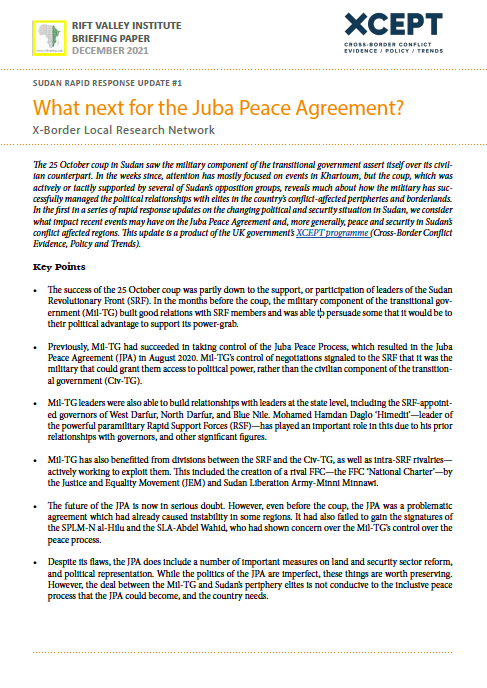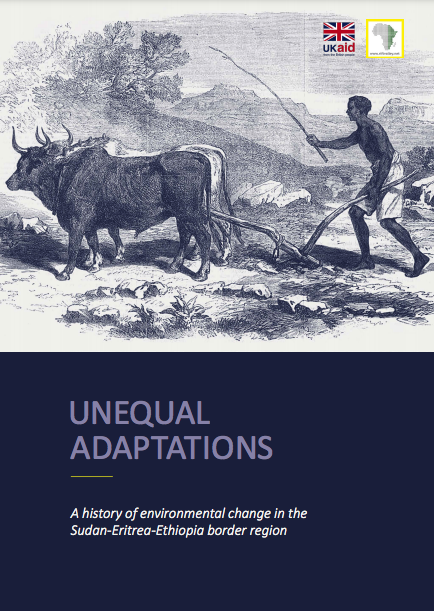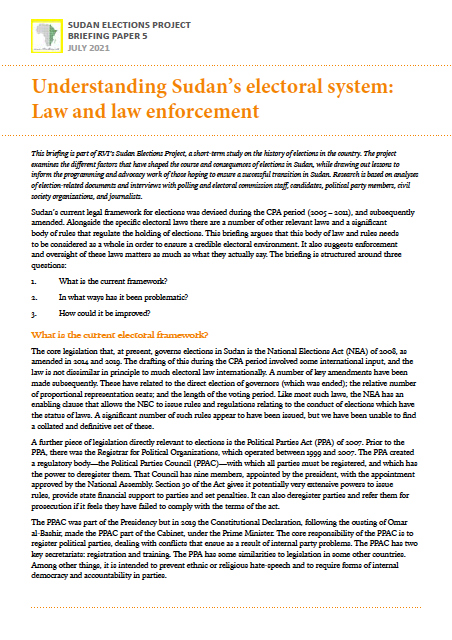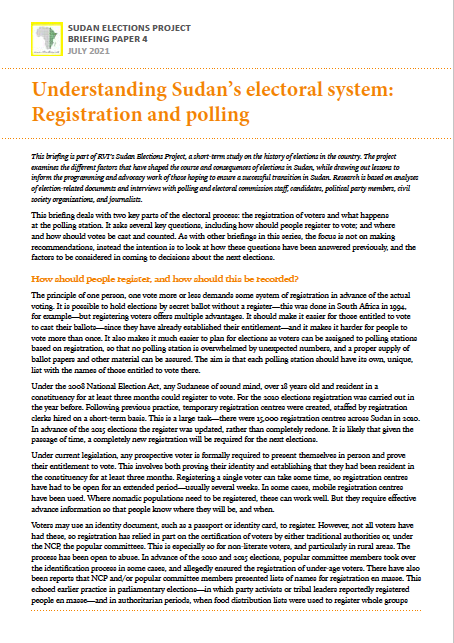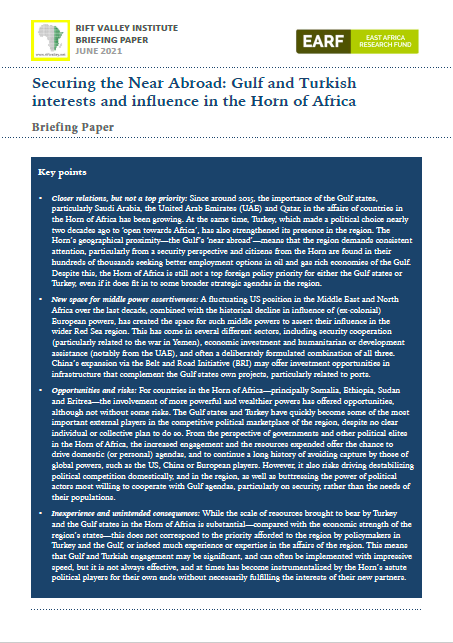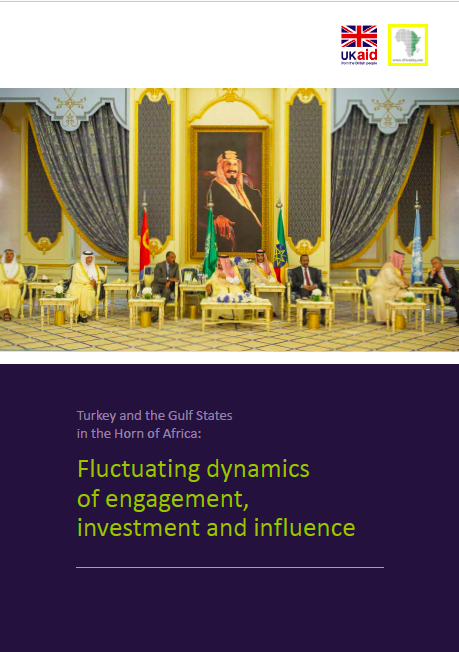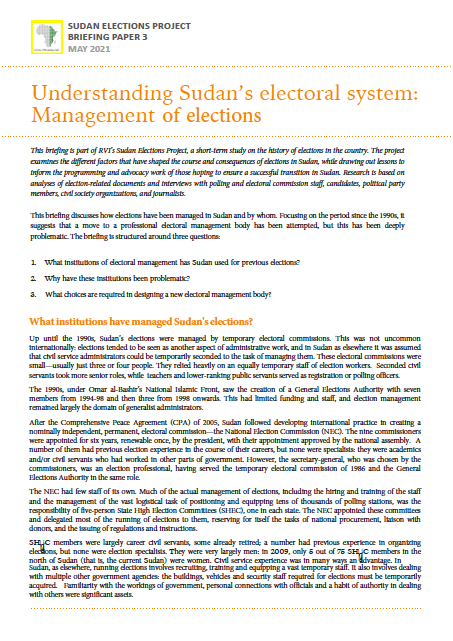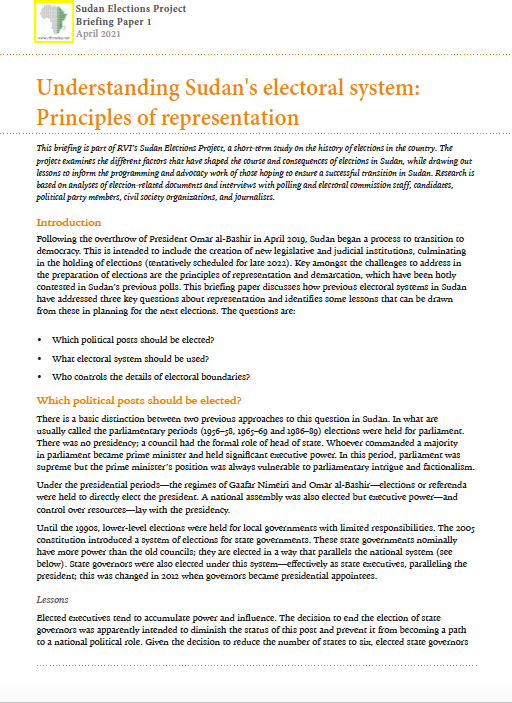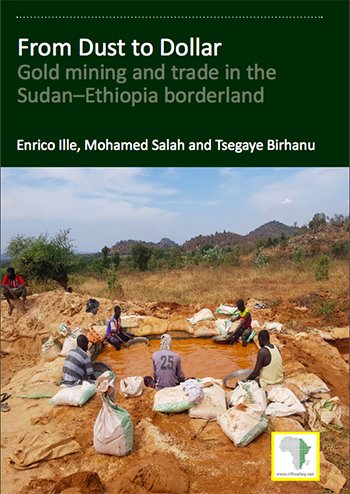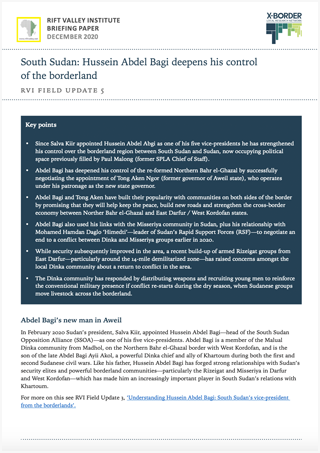The 25 October coup in Sudan saw the military component of the transitional government assert itself over its civilian counterpart. In the weeks since, attention has mostly focused on events in Khartoum, but the coup, which was actively or…
RVI publishes books, research reports, research papers, briefings and meeting reports in a range of formats. Publications cover policy, research, arts, culture and local knowledge in the countries of eastern and central Africa. Research publications—books, reports and papers—are peer-reviewed. Some RVI publications are also available in French and/or Arabic.
The RVI is a signatory of the Budapest Open Access Initiative (2001); all publications are free for download in PDF format under Creative Commons licences. The views expressed in books and reports published by the RVI are those of the authors, not the Institute.
SEARCH
PUBLICATION TYPE
LANGUAGE
REGION
COUNTRY
The Sudan-Eritrea-Ethiopia border region has long been a place of deep interconnection. Historically, collaboration across ethno-linguistic and religious divides allowed communities to develop life-sustaining complementary strategies for utilizing the region’s natural resources. These traditional patterns of human-environment interaction both…
This briefing is part of RVI’s Sudan Elections Project, a short-term study on the history of elections in the country. The project examines the different factors that have shaped the course and consequences of elections in Sudan, while drawing…
This briefing is part of RVI’s Sudan Elections Project, a short-term study on the history of elections in the country. The project examines the different factors that have shaped the course and consequences of elections in Sudan, while drawing…
Since around 2015, the importance of the Gulf states, particularly Saudi Arabia, the United Arab Emirates (UAE) and Qatar, in the affairs of countries in the Horn of Africa has been growing. At the same time, Turkey, which made…
Since around 2015, the importance of the Gulf states, particularly Saudi Arabia, the United Arab Emirates (UAE) and Qatar, in the affairs of countries in the Horn of Africa has been growing. At the same time, Turkey, which…
This briefing is part of RVI’s Sudan Elections Project, a short-term study on the history of elections in the country. The project examines the different factors that have shaped the course and consequences of elections in Sudan, while drawing…
This briefing is part of RVI’s Sudan Elections Project, a short-term study on the history of elections in the country. The project examines the different factors that have shaped the course and consequences of elections in Sudan, while drawing…
From Dust to Dollar focuses on the borderland region between Sudan and Ethiopia, using gold-mining and trade to examine transnational flows of people and commodities across its semi-permeable frontier. Gold mining has shifted from being part of a long-term,…
In February 2020 Sudan’s president, Salva Kiir, appointed Hussein Abdel Bagi—head of the South Sudan Opposition Alliance—as one of his five vice-presidents. Abdel Bagi is a member of the Malual Dinka community from Madhol, on the Northern Bahr el-Ghazal…
Recent Publications

Political Economy of Cash and Markets in Sudan
February 27, 2026
The research provides a snapshot of the war in Sudan in the period from February to April 2025. However, the war is dynamic, with political alliances and territorial control changing. The April 2023 conflict between the Sudan Armed Forces (SAF)

Rethinking Ethiopia II: Youth and politics
February 26, 2026
Seminar report Rethinking Ethiopia, a collaborative essay competition initiative between Addis Ababa University’s Institute for Peace and Security Studies (IPSS) and the Rift Valley Institute’s (RVI) Peace Research Facility (PRF), offers a platform for Ethiopian youth to express their ideas

2025 Year in Review
February 16, 2026
The 2025 Year in Review provides an overview of the Rift Valley Institute’s work over the past year across eastern and central Africa. The report highlights RVI’s research and publication outputs, education and training activities, and public forums and convenings,

